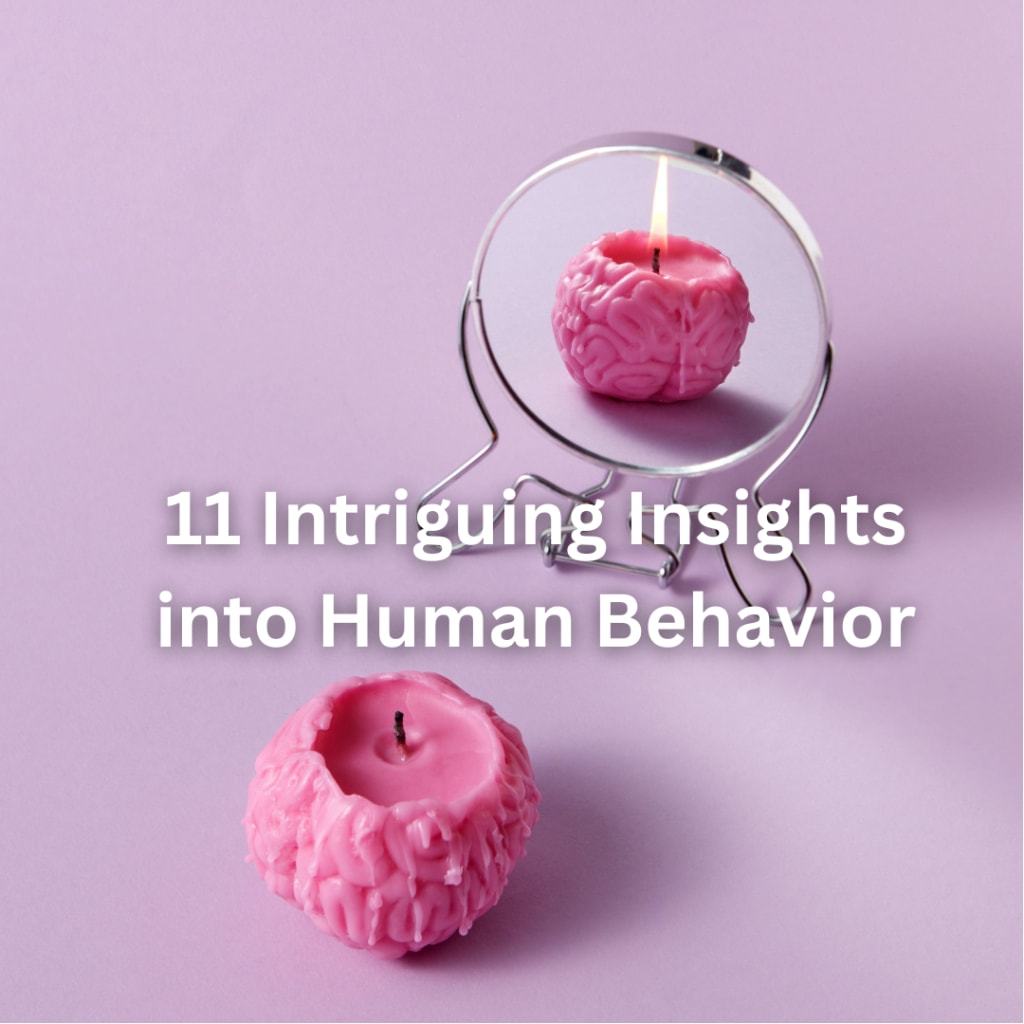
11 Intriguing Insights into Human Behavior: Unraveling the Complexities of the Mind
Have you ever pondered why we humans think, feel, and act as we do? It's a source of endless fascination for many. After all, our mental processes play a crucial role in shaping our actions and identity. The fields of human behavior, brain function, and mental processes have been extensively explored. Although many mysteries remain unsolved and the journey ahead is long, delving into the basics of behavior and the human mind helps us better understand both ourselves and those around us. In this article, we've gathered some genuinely captivating facts about the psychology of human behavior, offering insights into why we think, feel, and behave in specific ways. Let's dive right in!
Number 1 - The Enduring Impact of Early Adulthood
Have you ever noticed how older individuals frequently reminisce about their early twenties? This phenomenon is known as the "reminiscence bump." We tend to remember experiences from adolescence and early adulthood more vividly due to the emotional intensity of this period and the multitude of choices and changes it entails. Graduations, marriages, and the birth of children imprint lasting memories linked to our self-identity and life perspectives.
Number 2 - Gaining Clarity Through a Different Perspective
Do you find it easier to solve other people's problems than your own? Most individuals do, a phenomenon termed the "Solomon's paradox." Regardless of age, people tend to approach others' difficulties more rationally than their own. By adopting a self-distancing strategy, you can overcome this bias, enhancing your ability to analyze personal dilemmas from an outsider's perspective.
Number 3 - The Unconscious Incompetence
You've probably encountered someone confidently asserting their knowledge on a topic, blissfully unaware of their own ignorance, often during family gatherings or discussions. This cognitive bias is known as the "Dunning-Kruger effect," where people overestimate their competence due to poor self-awareness and limited cognitive abilities.
Number 4 - Canine Companions Mirror Their Owners
Research suggests a correlation between anger, aggression, and hostility in dog owners and their choice of stereotypically aggressive dog breeds. Are people selecting pets that reflect their personalities, or do other factors influence this choice?
Number 5 - Daydreaming: The Portal to Creativity
Have you ever been reprimanded for daydreaming in class or during a meeting? Contrary to common belief, daydreaming may indicate intelligence and creativity. Research reveals that frequent daydreamers tend to score higher on IQ tests and exhibit more efficient brain function.
Number 6 - The Emotional Sting of Rejection
Ever felt an emotional pain akin to a physical blow after facing rejection? Studies show that rejection activates the same brain regions responsible for physical pain, elucidating why even minor rejections can be emotionally painful.
Number 7 - Altering Decisions Through Language
Surprisingly, speaking in a foreign language can lead to more rational decision-making by reducing cognitive biases. The act of suppressing one's native language and inhibiting intuitions in a foreign language context promotes logical choices.
Number 8 - The Fundamental Attribution Error
Have you ever criticized someone for their actions but rationalized your own in a similar situation? This is the "fundamental attribution error," where individuals attribute others' behavior to their character while attributing their own actions to external factors.
Number 9 - The Third-Person Effect
We often perceive the impact of advertising and persuasive messages on others but underestimate their influence on ourselves. This is the "third-person effect," revealing our susceptibility to media messages and their subtle sway over our attitudes.
Number 10 - Dopamine: The Information Quest
Ever found yourself endlessly scrolling through social media or seeking more information? Blame it on the dopamine-seeking reward loop, which fuels curiosity and compels us to seek more data. Unfortunately, satisfaction remains elusive.
Number 11 - Extending Life through Acts of Kindness
Volunteering not only benefits society but also enhances personal well-being. Regular acts of kindness reduce stress, promote health, and boost life satisfaction. The sense of fulfillment derived from aiding others contributes to a longer, more fulfilling life.
While these facts offer captivating insights into human nature, it's important to acknowledge that many emerged from research involving smaller groups of individuals. Nevertheless, they serve as a captivating starting point for deeper exploration into the enigmatic world of psychological research.





Comments
There are no comments for this story
Be the first to respond and start the conversation.